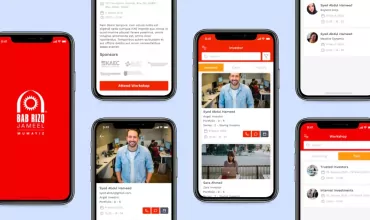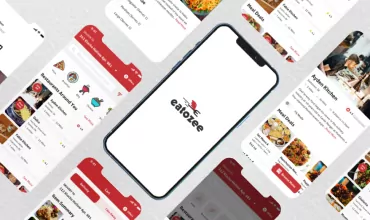Why Safeguard your IP while Software Development Outsourcing?

Table of Contents
When you hire a technology partner for your software development requirements, your principal objectives are that the software should stick to your business and operational demands.
However, an added worry for most companies is safeguarding their concepts and source code. Unquestionably, an exclusive product or service for a business can be a precious asset.
However, theft from the application is tougher than merely imitating the code. Intellectual Property (IP) rights are not restricted to patents, trademarks, and copyrights; they can also be functional for the source code, procedures, methodologies, and talent.
Outsourcing software development is a mutual practice for companies that want to mature without taking on the expenses of hiring full-time staff. Still, it can be risky as it often involves your firm’s confidential data to the service providers.
The following possibilities establish a critical source of this IP concern:
- What if the code built for your company is reused?
- What if your company’s code is shared with your rivals?
- What if the provider does minor alterations in your code and builds his product?
What Is Considered Intellectual Property?
Before you initiate outsourcing, choose what IP you are prepared to reveal and what IP should be kept within the organization. If any work depends on 3rd party providers, cross-check your agreement with them before disclosing any confidential data.
The following are measured as intellectual property:
- Utility Patents – protects software procedures and functionalities.
- Design Patents – safeguards your Graphical User Interface.
- Trademarks – defends your company brand, logo, business name, or tagline.
- Copyright – guards your source code, web portal, and marketing materials.
- Trade Secrets – shields technical insights, user information, interior processes, and research data sets.
Strategies and Ways to Protect your Intellectual Property When Outsourcing

1) Select a Reliable Partner
You can protect intellectual property prior to the foremost line of your code is prepared. Select your service partner wisely and work only with a trustworthy company that works under a strong legal framework.
It will help if you give precedence to countries like the USA, India, and Japan, where the security procedures are warranted with the mature legal system. India has numerous laws comprising all the aspects of IP. It is a contributor to many global treaties in intellectual property rights.
Upright service providers will have no problem sharing all the information you request. You can decide to work with based on their work portfolio, client feedback, and earlier customer references. Working with service partners built on honesty will trim down the probability of fraudulent dealings and the source code intellectual property stealing.
2) Enable Vendor Security Audit
This specifies your tech partners’ care in protecting your IP assets. Knowing more about your vendor’s dealings and work settings can comprehend their protection practices.
- Their workplaces are safeguarded by UTM solutions and a Firewall
- No detachable media is permitted in & out of the work premises
- Illegal access to the workplace and devices is banned
- Data recovery policies and practices are in place
3) Sign a Comprehensive NDA
Signing a non-disclosure agreement (NDA) can be a supplementary layer of safety that confirms that all shared assets will stay private amid you and your service providers. Also, service providers have an NDA signed by their staff, who have access to your company’s code and IP possessions.
The NDA is enlisted extensively enough to clear what can’t be shared by the service provider and its staff. Each staff member working on your project is alert of your unattainable areas and safeguarded measures that the NDA specifies.
4) Utilize a Non-competence Agreement
The Non-competence Agreement (NCA) with the vendor can avoid the competitors’ see-through of your IP assets. The logic is to keep the staff from sharing your business secrets with your competitors. Principally, you get devoted employees working on your project, keeping them out from working on other client’s projects.
However, NCA characteristically has a decided time frame as it can bound the service provider from taking futuristic projects even after it has finished your tech projects.
5) Bound Data and Server Access
When outsourcing work to a programmer, it is the proper practice to bound the server, API, and data access to only what’s obligatory for the programmer to perform the assigned jobs.
It is best to sidestep sharing the organization’s IP to all and share it with merely selected stakeholders to safeguard your intellectual property.
6) Carefully and Precisely Document Everything
You should document all interactions, jobs performed, created source code, and project records. These project records and notes may be helpful if a quarrel ever rises and may also be an upright orientation point when planning forthcoming implementation tactics.
At IndiaNIC, We Understand and Comprehend Your Concerns
Our teams consider the client’s privacy, Intellectual Property, and data security the highest priorities. We are involved in a formal NDA and NCA with the project contract before signing a business.
Our teams pay attention to Physical security, IP segregation, network, and data security measures. The ownership rights of the application, project code, and design are well documented.
We work towards conserving any discussion of information performed during the project as private and limited to that project.
Key Takeaways
The above practices can assist lay a basis of reliability with your outsourced service provider. This trims down the distress that your source code Intellectual Property can straightforwardly be escaped to your competitors.
So, considering all the probable IP risks, it is suggested to work with a trustworthy company you rely upon, get legal agreements, and move forward with having genuine partnerships!
FAQs on the Importance of Protecting Intellectual Property
Why is it quite important to protect intellectual property?
Your IP rights are significant as they can set your business apart from rivals, be sold or licensed, allowing an imperative revenue source and offering clients something innovative and different.
What is the best way to protect intellectual property?
- Have different teams.
- Sidestep joint ownership.
- Get exactly matched domains.
- Defend with robust access control.
- Get strong project agreements.
What are the categories of intellectual property?
Patents, trademarks, copyrights, and trade secrets are valued possessions of an organization.
What are some of the examples of IP rights?
- Patents
- Domain names
- Confidential data
- Database rights
- Technology rights
Why is intellectual property significant to business and operations?
It guards business and operational assets vital to enable the core services and long-term realism of company goals.



